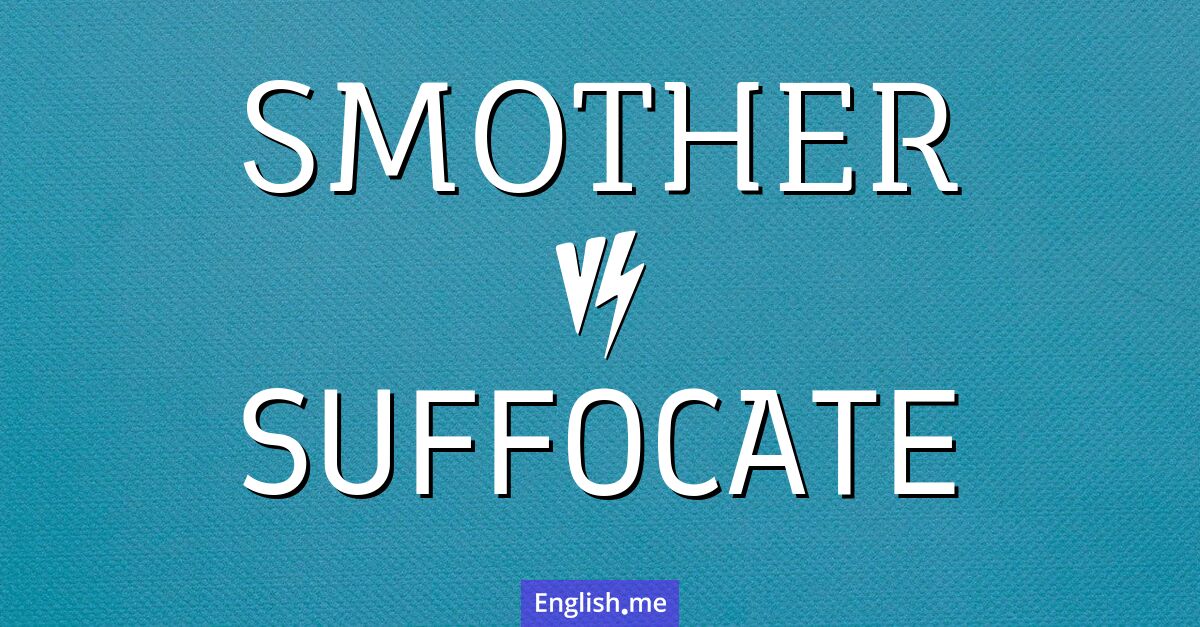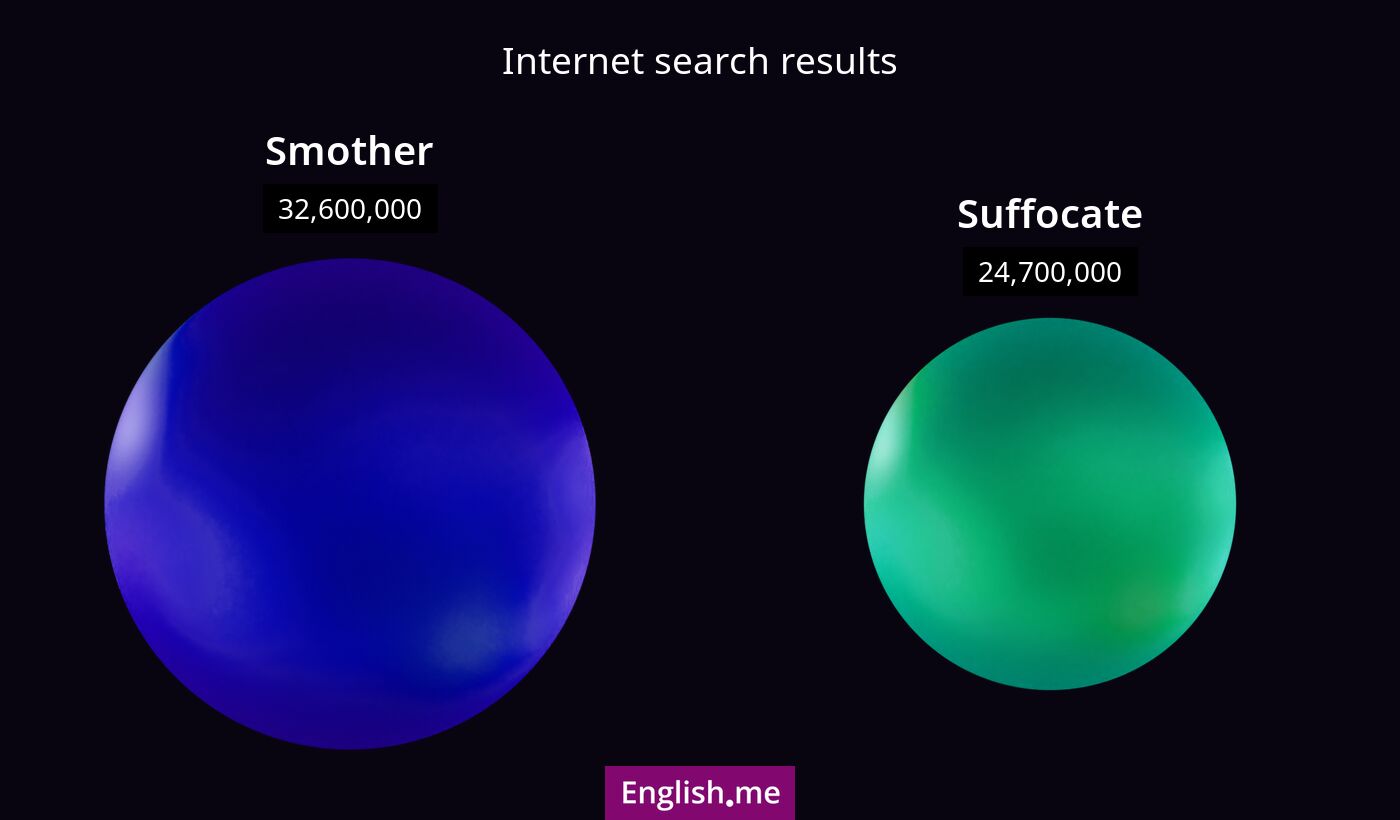"Smother" vs. "suffocate": when words take your breath away

 What is similar?
What is similar?
Both "smother" and "suffocate" involve causing difficulty in breathing due to obstruction or lack of air. They can be used literally to describe physical situations where breathing is hindered, and figuratively to express feelings of being overwhelmed or oppressed.
 What is different?
What is different?
"Smother" often implies covering something completely, which can lead to suffocation, but it also means overwhelming someone with excessive attention, affection, or elements. It has a broader usage, encompassing both positive and negative contexts. "Suffocate" specifically refers to the inability to breathe due to lack of air or obstruction and is primarily used in negative contexts to describe situations where someone or something is deprived of air or freedom.
 Which one is more common?
Which one is more common?

 Examples of usage
Examples of usage
Smother- She used a blanket to smother the fire.
- His mother tended to smother him with affection.
- The dense fog seemed to smother the entire town.
- The trapped miners feared they would suffocate without proper ventilation.
- She felt like she was going to suffocate in the cramped, crowded room.
- Plants can suffocate if their roots are waterlogged and lack access to oxygen.

 English
English español
español française
française italiano
italiano deutsche
deutsche 日本語
日本語 polski
polski česky
česky svenska
svenska Türkçe
Türkçe Nederlands
Nederlands